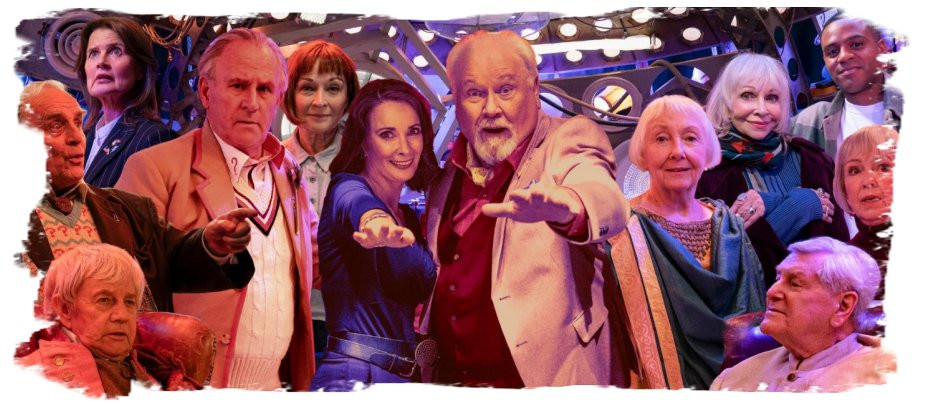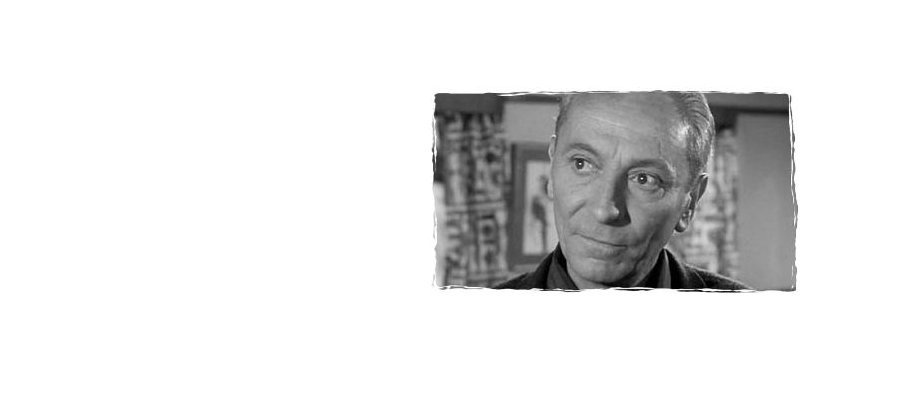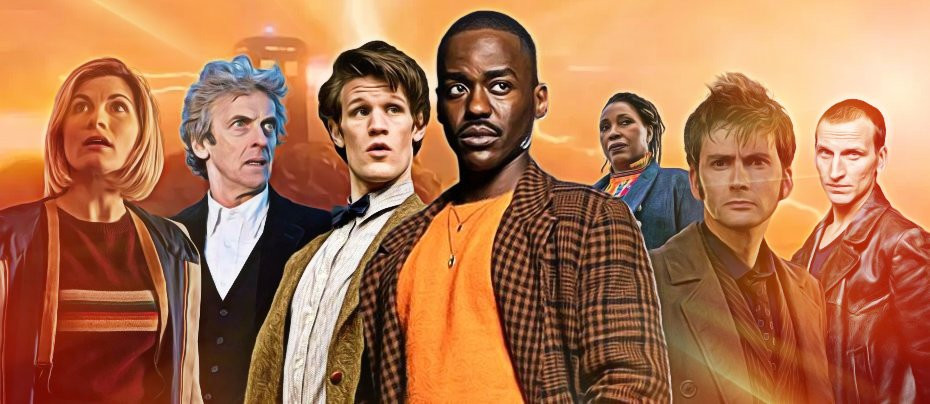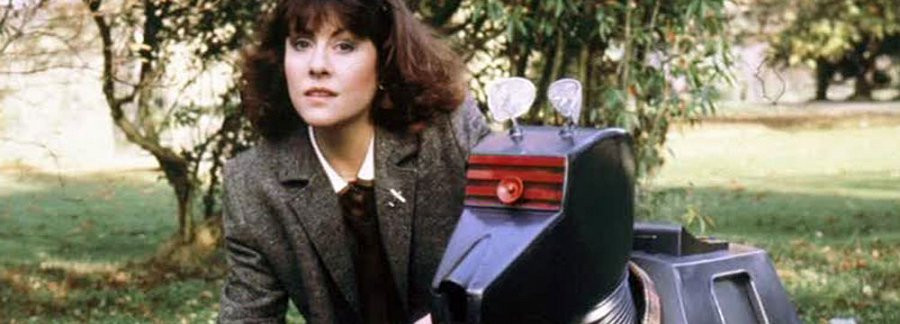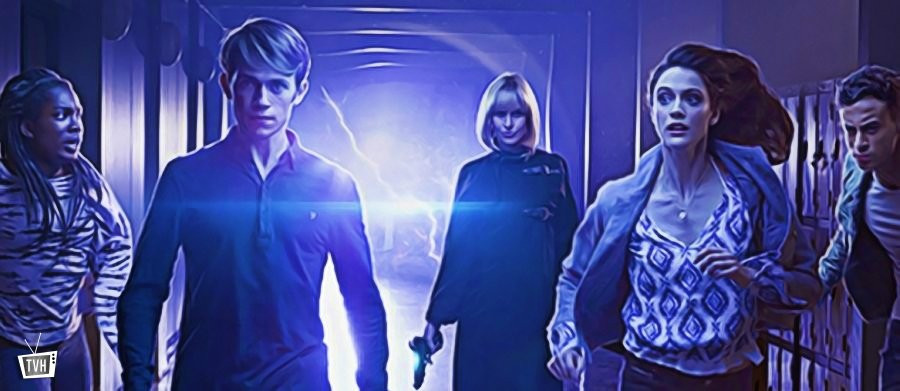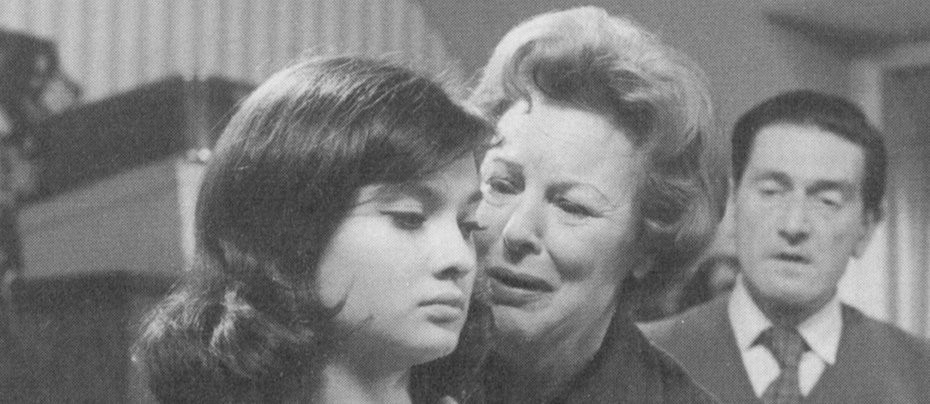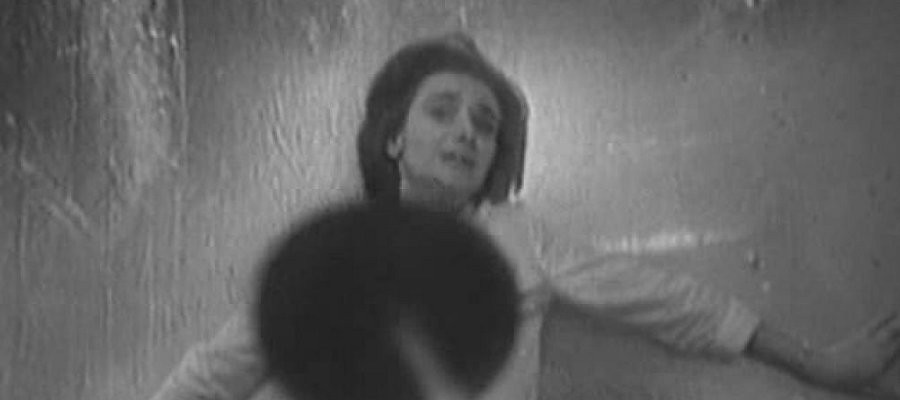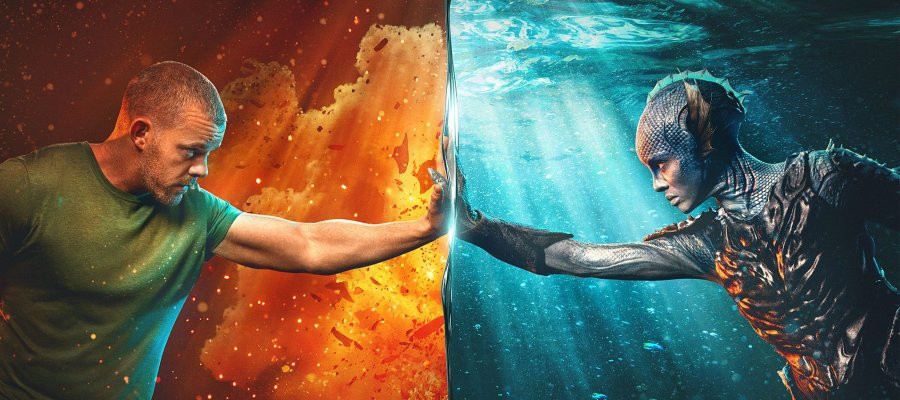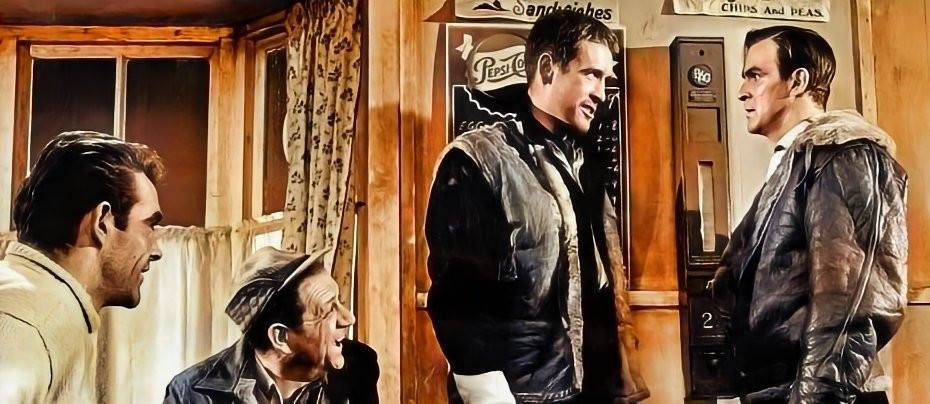The Savages
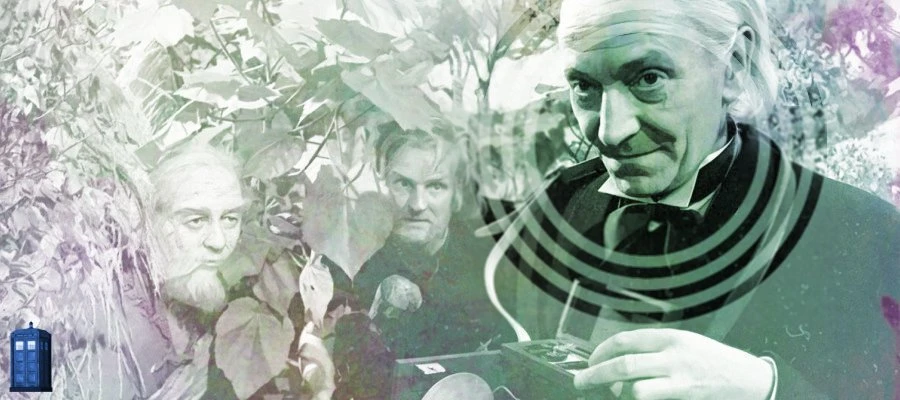
The Savages is one of the more obscure of Doctor Who’s early serials, being one of many that suffered complete erasure from the BBC’s television archives. Like every story, the soundtrack survives, and it also boasts a complete set of telesnaps – off-screen photographs taken by the technique’s inventor, John Cura. In spite of having both an audio and a visual record, The Savages is one of the least talked about of all Doctor Who serials, lost somewhere in the last days of William Hartnell’s tenure as the Doctor. However, in 2025 an animated release on DVD and Blu-Ray brought the serial back into focus, presenting a version that could actually be watched fully for the first time in almost sixty years.
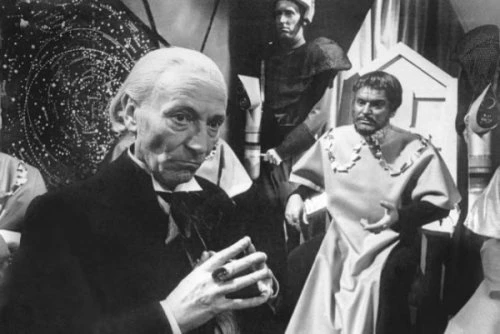
The Savages is a solidly straightforward bit of science fiction. The TARDIS lands at some point in the far future, on a nameless planet inhabited by two groups: the self-named Elders in their technologically advanced city, and those they term “savages,” who live in the wilderness outside. The Doctor is looking forward to experiencing the utopian society he expects of this future era (well, he says it’s the far future, but his record in these matters isn’t exactly faultless in this period). The Elders, too, are excited to welcome him, having been watching his adventures and knowing him as “the Traveller from Beyond Time.” How they’ve managed this is not explained; maybe they have one of those space-time tellies from the earlier serial The Chase.
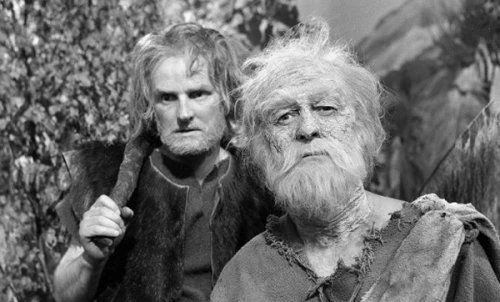
It isn’t long before the truth of their peaceful, idyllic existence becomes clear. The Elders subsist by draining the life force from the savages, leaving them weakened but alive, then repeating it again and again once they have recovered. Dismissing them as barely more than animals, the Elders consider their neighbours as a simple resource and a necessary sacrifice for their way of life. Of course, the Doctor is furious when he discovers this, throwing his status as an honoured guest back in the Elders' faces and railing against their cruelty. Given that this a planet of Doctor Who fans, you have to wonder why they thought the Doctor would be on their side. They're also surprised to see him travelling with companions, something he as done throughout the series so far. Perhaps they've been watching the adventures of a different incarnation of the Doctor, one who travels alone and isn't as moral. Perhaps this was a future Doctor; or even, given revelations in the modern series, an earlier one.
The term “savage” is one with a long history, originally applied to a cultural or ethnic group who were considered less civilised, even less human, than Europeans. It’s a term that has been used to justify stripping indigenous peoples of their rights and lands for centuries. Its continued use in the serial’s title is therefore contentious. Unlike earlier Doctor Who serials, there isn’t an alternative option; The Savages was the first serial to use a single, unifying title for all its episodes, rather than having individually named instalments. It could have been worse; the working title for the story was The White Savages.
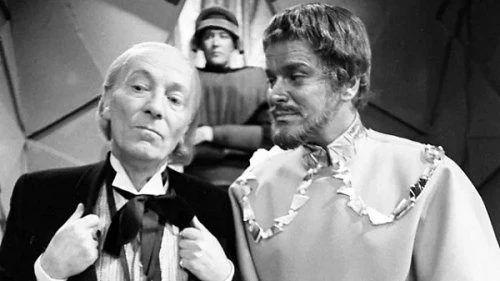
Yet the entire point of the story is how such dehumanising terms are used to dismiss the rights of other groups. Writer Ian Stuart Black (The Invisible Man, Danger Man, Star Maidens) reportedly intended the story as a parable about apartheid South Africa. His earlier title makes sense; the so-called savages were to be white with their exploitative overlords being black, in a reversal of the status quo in South Africa at the time. An early plan to have the Elders all be played by white actors in blackface was, mercifully, dropped, although the telesnaps clearly show Frederick Jaeger (I Woke Up One Morning, The Onedin Line) in boot polish make-up as their leader Jano. It clearly didn't occur to anyone on the production team to actually hire actors of colour for any of the roles.
Whether Black specifically meant to allegorise South Africa or not, the set-up of the serial could be used to represent virtually any society where one group is exploited for the benefit of another. Colonial nations and empires are the most obvious, but it could even be taken as a working class polemic aimed at the wealthy who benefit from others’ labour. The decision not to black up the Elders means that any anti-colonialist message is somewhat weakened, yet the fact that both the sophisticated, civilised folk and the supposed animals look the same adds to the arbitrary cruelty of one group oppressing and using another.
The Savages was the first serial that was entirely the work of new producer Innes Lloyd and script editor Gerry Davis, and changes were afoot. Lloyd, in particular, wanted to stamp his name on the series and worked quickly to remove and replace the entire regular cast. The first to go was Peter Purves, who turned up for work to find his contract hadn't been renewed. It is, however, a strong story for his character, Steven Taylor, leading the rebellion against the Elders. He gets to be the soldier one last time, turning the guards' weapons against them so that they can feel what it's like to be on the receiving end. This leads many of them to finally empathise with the savages and to turn against the Elders. (If only it were that simple in real life.)
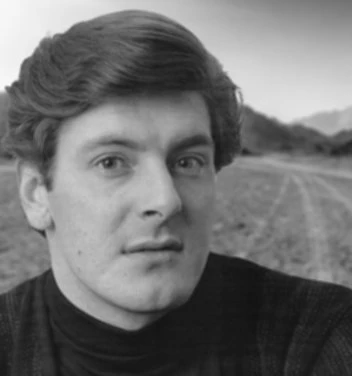
Steven is abruptly written out at the end of the serial when the Doctor essentially volunteers him to be the new ruler of the planet. Steven doesn't actually seem to want the responsibility of bringing the two cultures together, but takes it with good grace, albeit stoically. Still, it's a better exit than Dodo gets in the following story. For now, Jackie Lane at least gets to play her character for one last whole adventure, raising to the job of rebellion with Steven and the others. Her accent's all over the place, though, with Lane's natural Mancunian slipping through at inopportune moments (although it'd be in character for Dodo to be a Manc, trying to convince as a Londoner because that's hip and happening thing to be).
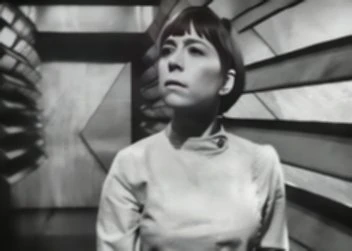
The writing was on the wall for Hartnell, too. The Celestial Toymaker, two serials earlier, had already been written as a possible story to replace the star. Now it's never been confirmed that The Savages was considered for the same, but it's easy to see how it could have been, and even how it hints at what's to come. For the first two-and-a-bit episodes, Frederick Jaeger has played Jano as the classic benign dictator – an outwardly amiable, rational, reasonable leader who is, underneath, a ruthless tyrant. Jano has no qualms in draining not just the outsiders but his hero the Doctor of his life force. Strapping the Doctor into the extractor, Jano orders his scientists to not only leech the Doctor's life energies but to channel all of it into him, rather than spreading it out among his people as they usually do.
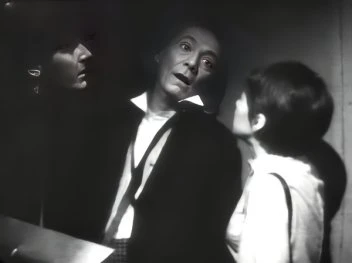
It's never stated clearly, but it's likely that the people on this planet are human, a colony of people who can trace their ancestry back to Earth. The Doctor, on the other hand, has long been hinted to be something quite different, and his life force is clearly something much more potent than simple vitality. Not only does the Doctor produce a record amount of energy, but once it has passed into Jano his personality begins to change. Jaeger begins to give a spot-on performance of Hartnell as the Doctor, as Jano is taken over by the Doctor's persona and memories. Even once this abates, Jano is still infused with the Doctor's morality, changing his outlook on his entire society.
The producer could easily have decided to offer Jaeger the role of the Doctor, taking the lead as the character continues on in a new body. In the end, three stories later, this is what happened, albeit in a very different way. It's an early inkling, however, that the Doctor's identity and life force are quite different to a human's, capable of living on when his body cannot.
The serial alternates between a futuristic city studio set and some of Doctor Who's earliest quarry location shooting, with quite a sizeable guest cast. Ewan Solon (Maigret, Bellbird) gives a dignified turn under unflattering make-up as the aged leader of the savages, Chal. Patrick Godfrey (Hobson's Choice) plays Tor, the obligatory angry rebel who disagrees with everything the leader says. The very beautiful Clare Jenkins (Ivanhoe) plays the scantily-clad Nanina, a tribal woman who almost appears to be a prototype Leela. Kay Patrick (The First Churchills) plays Flower, a young attendant of the Elders, who dreams of living outside the city. Stage actor Robert Sidaway plays her arrogant partner Avon, while Geoffrey Frederick (Riviera Police) has a significant role as the city guard Exorse. It's all fairly by-the-book, character-wise, and while the story has a simple moral, it's effectively told with an enjoyably action-packed plot.
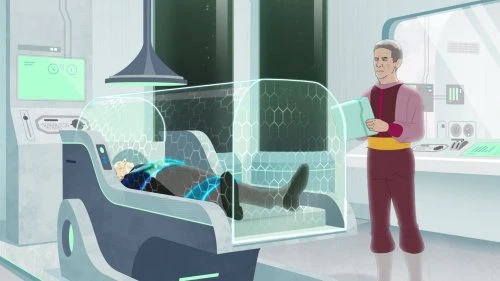
It's impossible, now, to know how this serial looked on broadcast, but among the different stand-in options we have we can piece things together. There are fragments of film footage left, the option of a reconstruction made up from telesnaps and audio, and the “best guess” option of the animation. As a quarry-bound sci-fi story without a monster, it hardly seems like it would capture the imagination of younger viewers. Some images seem quite striking, particularly the extraction room, but without any real idea how it was directed there's no way to say how well they worked on screen. With landmark stories to come and no actual decent footage, it's not too surprising that this serial hasn't had the attention it deserves. While it's unlikely to be anyone's favourite story, The Savages is a diverting enough sci-fi parable that's worth a look now it's actually possible to watch.
Lloyd and Davis must have been impressed with the script, as they immediately commissioned Black to write another – the very next serial, in fact, The War Machines. Several of the guest cast would be back too. Jaeger appeared in two of Tom Baker's serials, Planet of Evil and The Invisible Enemy, somehow playing his roles more over the top each time. Planet of Evil also featured Ewen Solon, while Patrick Godfrey returned for Pertwee serial The Mind of Evil. Both Clare Jenkins and Robert Sidaway would be back during Patrick Troughton's tenure, in The Wheel in Space and The Invasion, respectively.
As for Peter Purves, he's returned to the role of Steven a number of times over the years. The only time on screen was as part of sixtieth anniversary series Tales of the TARDIS for the repackaging of The Time Meddler. However, he's reprised the role again and again on audio for Big Finish. While these are generally more interested in creating missing adventures during Steven's time on the TARDIS (with Purves often putting in a decent performance as the Doctor as well), there are a couple that focus on his time in the years that follow. 2014 release The War to End All Wars even reveals that the copy of the Doctor's personality that was expunged from Jago lives on years later, causing trouble...


